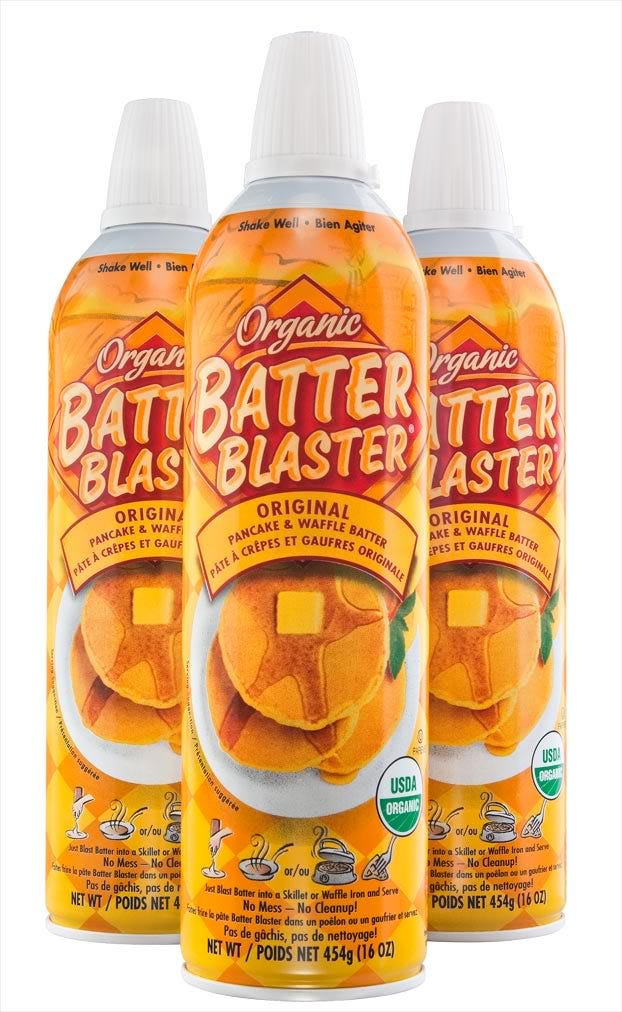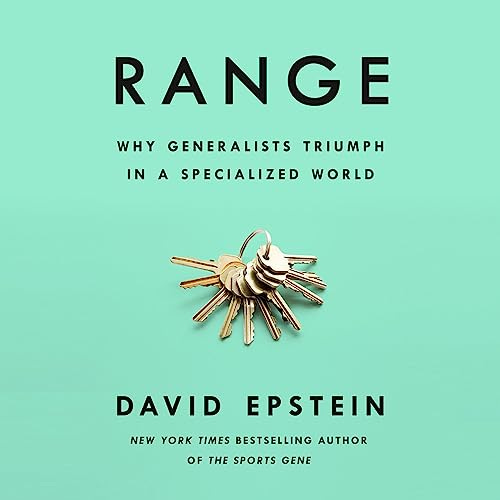Range Life
Resilience and Experience, and why employers hate them
Not everyone can say, “I burned down the music industry,” but if someone or someone(s) lit the torch, I certainly helped open the matchbook. Napster, BitTorrent, Rhapsody -- the earliest, pre-Spotify music streaming model -- I was there at the beginning.
In 1995, when I was 25, I started working on the first real online music magazine, Addicted to Noise. I wrote stories and published news via a homebrewed content management system for a daily, up-to-the-minute music news publication. Only much later in my life would I realize a good portion of my adult life had been spent in the caring for and feeding of Content Management Systems.
It was a very good early gig. The typical startup hours, morning til night, learning music journalism as a trade, cranking out endless 500 word stories about Wilco, American Music Club, and Superchunk, and becoming vilified by fans for a viciously harsh review of Dave Matthews’ Before These Crowded Streets.
(Not only did RCA ban me from receiving any more promos, for years after, if you Googled my name, the first result that came up was “Nick Tangborn is an asshole and should be fired.” Some Dave Matthews uber-fan had gotten his revenge, he thought. However, we ran the hate mail in an article with my response using only Dave Matthews lyrics. )
At the behest of my college pal Carl Steadman, who had been a famous/infamous internet mini-celebrity - he referred to himself as a “Thousand-aire” after he sold his satiric website Suck.com to Wired - I jumped ship to be the first employee at Listen.com.
At Listen.com we drank a lot. There were flowing beer taps built into the employee kitchen island, next to the sink. I’m sure more than a few were sneaking a pint or two to go with their Dos Pinos burritos.
And we created an editorialized encyclopedia of all music on the internet.
In retrospect, we did something pretty amazing, cataloguing something like 150,000 artists on the Internet before there was any established digital music ecosystem. This was in 1998-‘99 when music on the Internet meant IUMA, and MP3.com, and Liquid Audio. All of which are long dead.
It was before iTunes, before Spotify, before Pandora. Before Napster.
Napster was a seismic event.
No longer did digital music on the Internet mean every garage band (this was before garageband.com, and also before GarageBand, which is a sentence that makes sense to those of you it makes sense to) and the 2 or 3 MP3s they’d uploaded to one of the rudimentary music services, like IUMA, the Internet Underground Music Archive.
With the launch of Napster, virtually everything was available in one place. And, as Gillian Welch sang, everything was free now. If of dubious legal provenance.
Soon enough, in reaction to the seismic event that was Napster, Listen.com pivoted and was renamed Rhapsody, the first real, paid, comprehensive music streaming service.
Rhapsody had a long run. But in the end, Spotify ate its lunch.
These days, in what has become an overflow of free time, I’ve been reading Range: Why Generalists Triumph In A Specialized World by David Epstein.
Epstein argues that hyper-specialization has created siloed intelligence. That so called experts can often be so trapped in their own narrow frame of experience that they misdiagnose issues: the old “If you’re a hammer, everything looks like a nail” problem.
He also argues that a breadth of experience prepares one substantially better to compete against today’s 10,000-hours-of-dedicated-practice culture. Malcolm Gladwell’s 10,000 hours of practice - whether you’re the Beatles or Bill Gates - has seeped into the corporate mindset.
In my case, and in the case of many folks I’ve seen through job interview processes, “Jack of All Trades” is considered a hindrance, if not a black mark, usually followed by “Master of None.” Especially if you’re over 45.
I’ve dipped my toe, often at years-long length, into many disciplines, roles, and business sectors; specialization was something I did in relatively short bursts.
Like trying to murder the music industry. Or selling organic pancake waffle batter in a Cheese Whiz can.
But back to the early years of Listen.com. We were full of ambition, drive, and venture capital.

In the company’s second year, I was able to go to Jamaica, to the Goldeneye Resort for a board meeting.
Chris Blackwell, the impresario of Island Records and Palm Pictures who had discovered or guided the discovery of everyone from Bob Marley to Steve Winwood to U2, was our impeccable host.
Joining us at Goldeneye was a fellow who would only say he “worked with Keith Richards.” He also looked a lot like Keith Richards.
And at every group dinner and lunch and happy hour, was a fresh out of rehab Kate Moss.
She was very slight and sweet and seemed to have an eye for the gardener.
Blackwell took a liking to me, because he had toured many digital music startups and I was the first, he said, who had music everywhere - on my desk, posters on the walls, piles of records.
After a particularly strong dose of the Goldeneye cocktail – rum and sugar, with more rum on top – Chris asked if I’d ever been wave running. Before I knew what was next, he said, “Alright, you’re probably just drunk enough to do it,” and we were heading down to the beach. Me, Chris, and Sean and Rob, at the time respectively the head of business development and the founder and CEO of Listen.com / Rhapsody.
We all hopped on wave runners and Chris immediately sped away, “Watch out for dolphins!” fading into his wake.
I was determined that a. I was not going to lose Chris and b. I was not going to fall off the wave runner.
I succeeded, at least, in the latter.
There were four of us on wave-runners. One by one I witnessed my other two coworkers go flying off. I was determined to stay on this thing, it was a matter of life and death.
After probably an hour of cruising around, jumping wave after wave, I sort of caught up to Blackwell; he was returning from wherever he’d raced off to, and I turned around, heading to the small pier where we’d dock.
By the time I reached shore I realized a few things:
- Being on a wave runner takes a tremendous amount of full body energy – you are holding yourself on and upright against pressure, launches, and landings with your hands, arms, legs, center mass, and everything else.
- I had made it all the way back without once falling off. Yay me!
- Kate Moss was sunbathing topless at the dock.
I cruised in quietly, and pulled my hands off the steer. As I tried manfully to pull myself up on the dock I then realized that not only did I need to say something like “Hello” to an internationally famous model who was not wearing, really, anything, but also that I had no bodily support left in any of the muscles I so narrowly possessed.
And so. At the same time I said “Hi Kate,” my body collapsed like an undercooked flan, into a pile of arms, custard, and feet. Literally, I couldn’t get up. I had wave-run myself into a state of complete blob-ness.
I pulled myself together, staggered to my feet, squeaked out “See you up there!” and blushed my way all the way to the top of the hill. My wife asked me what I’d been doing. I collapsed on the bed and barely made it to dinner later.
But I did it. I ran waves, I didn’t fall off, I was a music industry executive in Jamaica with Chris Blackwell and I wasn’t even 30 yet.
“Mark Zuckerberg famously noted that ‘young people are just smarter.’,” says David Epstein in Range. “And yet a tech founder who is fifty years old is nearly twice as likely to start a blockbuster company as one who is thirty.”
In other words, for this 54 year old, multi-careered job seeker and entrepreneur, Range is one big, tasty $18.00 sandwich of confirmation bias.
I did eventually wind up working for Napster itself.
After Rhapsody unceremoniously laid off half its staff, a personal cataclysm at the time, but one I’d encounter several more times in the world of tech startups, I was off to Napster.
This was the original, dangerous, Metallica-nemesis, RIAA-litigated Napster of 2001. Where employees made drugs in the microwave. And where I helped sell indie labels the value of licensing their music to the new, improved, label-friendly Napster. This was made difficult because:
a. nobody trusted Napster in the fucking least, and
b. everybody needed some custom clause relevant to their business circumstance, and
c. I couldn’t alter the licensing document at all.
Napster would eventually go through several transactions, at one point it was owned by Best Buy. Listen.com/Rhapsody would also traverse the 9 circles of M&A hell, and now is named, of course, Napster.
Some sort of cycle appears to be complete.
I, however, went from this auspicious beginning to running a pancake company, to hawking data crawled from Torrent servers and selling to the likes of Lionsgate, to co-inventing video streaming technology that turns your iPhone into a production studio.
I worked on generative AI ad makers. I hawked cold pressed green juice that gave me a Lovecraftian kind of diarrhea.
There are more road stories, and road bumps, to tell, but in the meantime, I’m trying to condense these experiences in to a compelling narrative. Like a documentarian with years of dusty footage. But instead, into a resume that doesn’t sound like Grandpa Simpson talking about an onion in his belt.
“Insist on having one foot outside your world,” says Range.
Sometimes it feels like I’ve had my feet in every world. But how do you compress that into a cover letter, and a resume, single spaced? How do you tell a hiring manager that you jet-skiied with dolphins and collapsed into jelly in front of Kate Moss, and still aced the board presentation?
How do you reinforce that years of disparate experience has not only made you a Jack or Jill of All Trades, but also resilient. Calm. Ready to handle just about any situation.
This is what experience buys you. Especially if that experience comes with a bit of range.
I hope you’re enjoying Are You Experienced?
You can always reach me at nicholas@areyouexperienced.co
More to come next time. I’m also considering putting out a second piece a week that is more about what I’m doing while job hunting — books I’m reading, inspiration I’m finding, movies I’m watching. If this sounds like something you’d enjoy, let me know. I’m open to suggestions.
-NT










Hey! Yeah, a few of them did. Batter Blaster worked thru a bunch of capital and then sustained itself for a few years. Rhapsody had multiple venture rounds. Depended on the business and the timeframe. It’s obviously much harder to get past the seed stage - or even into the seed stage - these days.
Thoroughly enjoyed yer memory lane Nick, reminds me of the old Norwegian adage, the pen is mightier than the fjord. P.S just out of curiosity, did any of the biz you ever work for get past "seed stage" or whatever VC call it, and survive to thrive in late stage crapitalism? - signed public sector employee